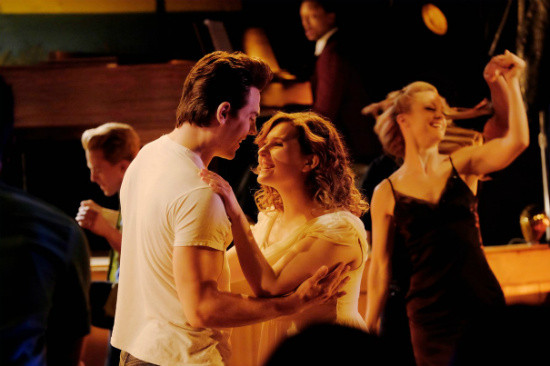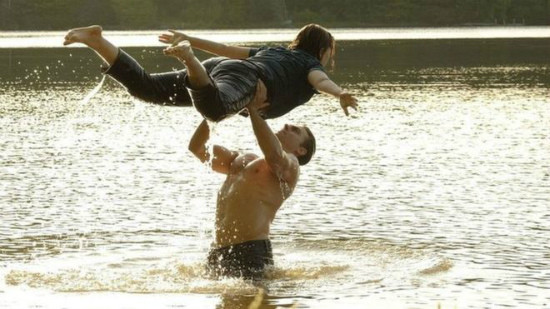ABC’s 2017 television remake of “Dirty Dancing” arrived with a wave of nostalgia and high expectations, but for many, it quickly became apparent that this rendition was far from the beloved classic. This wasn’t merely a case of a purist clinging to the original; this “Dirty Dancing” TV series struggled to justify its existence, presenting a bloated and tonally confused version of a story that arguably didn’t need retelling. Even with the passage of time since its release, the 2017 “Dirty Dancing” remains a point of contention for fans and critics alike.

One of the most immediate issues with the “Dirty Dancing” 2017 TV series was its pacing and structure. Clocking in at over two and a half hours, the remake felt unnecessarily long and padded. The writers opted to add a framing narrative around the central story of Baby and Johnny, a decision that ultimately diluted the core romance and coming-of-age themes. Instead of focusing on the sizzling chemistry and social commentary that made the original film so memorable, the remake introduced numerous subplots that felt underdeveloped and distracting.
Among these additions were a strained marital drama between Baby’s parents, and a subplot involving Baby’s sister and an interracial romance. While these elements might hold potential in separate projects, within the confines of the “Dirty Dancing” remake, they felt like narrative clutter, further detracting from the central storyline. The attempt to broaden the scope of the story only resulted in a lack of focus and a diluted impact.
Furthermore, the “Dirty Dancing” TV series struggled to capture the iconic atmosphere and energy of the original. The original “Dirty Dancing” effectively portrayed Kellerman’s resort as a world where class divisions and hidden desires simmered beneath the surface, culminating in the liberating release of dance. The remake, however, presented a more overtly sexualized and less nuanced depiction of this world. Scenes intended to showcase the passionate dancing of the staff often came across as gratuitous, lacking the subtle build-up and emotional resonance of the original film’s dance sequences. Even musical numbers, including a bizarrely out-of-place, sexually charged rendition of “Fever,” felt tonally inconsistent with the supposed family-friendly resort setting.

Casting choices also contributed to the remake’s shortcomings. Abigail Breslin, while a talented actress, seemed miscast as Baby Houseman. Her portrayal lacked the naive vulnerability and transformative journey that Jennifer Grey so effectively conveyed in the original. Similarly, Colt Prattes, stepping into the shoes of Patrick Swayze as Johnny Castle, failed to capture the charisma and smoldering intensity that made Swayze’s performance so iconic. The chemistry between Breslin and Prattes was notably absent, hindering the central romance that is crucial to the “Dirty Dancing” narrative. Their interactions often felt forced and devoid of the spark that should have ignited the screen.
Perhaps the most egregious misstep of the “Dirty Dancing” 2017 TV series was its handling of Baby’s character arc and the overall message of the story. The original “Dirty Dancing” subtly positioned Baby as a young woman on the cusp of feminist awakening, finding her voice and agency through her experiences at Kellerman’s. The remake, in a misguided attempt to modernize or expand upon this, ultimately undermined Baby’s feminist spirit. The added epilogue, depicting a future Baby as a conventional wife and mother, felt like a betrayal of her character’s journey and a capitulation to outdated societal expectations. This ending not only contradicted the narrative’s themes of personal liberation but also felt jarringly tacked-on and thematically confused, seemingly attempting to appease a conservative audience after exploring themes of abortion and interracial relationships.
In conclusion, the “Dirty Dancing” TV series 2017 unfortunately failed to capture the magic of the original film. Burdened by unnecessary subplots, miscast leads, and a fundamental misunderstanding of the source material’s heart, this remake ultimately served as a reminder of the enduring appeal of the original “Dirty Dancing” and the pitfalls of unnecessary adaptations. Instead of revisiting this lackluster remake, viewers would be far better served by revisiting the timeless classic that started it all.
